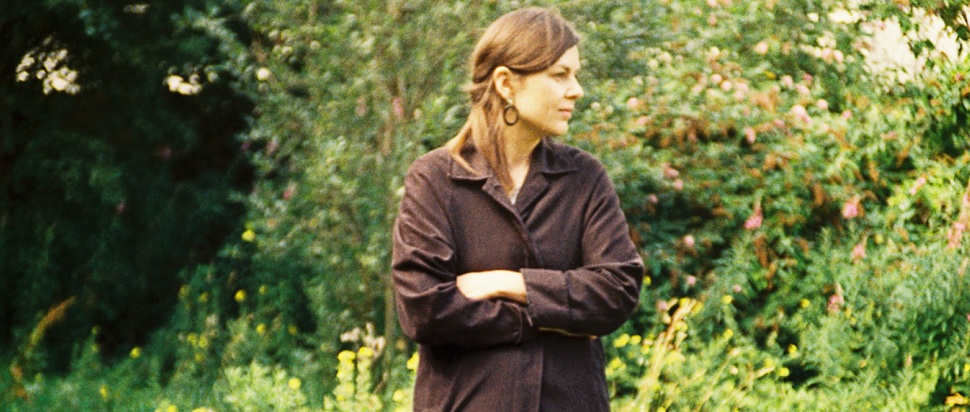Jill Lorean Wants You to Join Their Peace Cult
Ahead of releasing her second album as Jill Lorean, we catch up with Glasgow-based Chicagoan Jill O'Sullivan and find out why you should join her peace cult
Jill O’Sullivan is no stranger to making and releasing music in chaotic times.
The former Sparrow and the Workshop frontwoman debuted her newest project, Jill Lorean, in May of 2020 with EP, Not Your First. Though its reception was warm, there could be no in-person fanfare, of course. The outfit, which also includes musician and producer Andy Monaghan (Frightened Rabbit) and drummer Pete Kelly, released their full-length debut, This Rock, two years later. Lockdown was long in the rearview mirror, but it was still too strange to tour and fill rooms. And though this month’s release, Peace Cult, can get a proper celebration, it too arrives during messy times.
O’Sullivan wrote most of the album last October when the Palestine invasion and all its horrors were beginning to take over our social media feeds. The songwriter says there were moments when making music didn’t feel quite right to her. “I'd like to think I can just shut my brain off, but I can't,” she says. “So the lyrics on this album are maybe a little heavier than on the last one because I can't help it. You react to your surroundings. But I also feel like, in me, there's always a little hope. I feel optimistic about humans despite some of the horrible things we've seen.”
For O’Sullivan, the belief in the fundamental goodness of so many people is the hope to hold onto. It’s Jill Lorean’s peace cult, the album’s overarching theme of hope in a bleak world.
It was during her time of self-reflection, a weeks-long pause in writing the new record, that she discovered the concept of ancient Greek peace cults. Allegedly, springtime is when leaders announced their campaigns, deciding if that year would be one of war or peace. Groups calling themselves peace cults prayed to the goddess of peace for no war in the coming year, hoping instead for a time to focus on the harvest and enjoy art and the finer things in life.
“There was something about that,” O’Sullivan says. “Between that and talking to friends who encouraged me to – ‘Please, you can't stop making things because the world is in a dark place.’ I think I just thought, ‘OK, this has always been the case. There's always been a kind of a fight, a struggle between light and dark.’” And so the album’s North Star was born.
This central theme of optimism through resistance is also present in When the Bell Finished Ringing, a track about a cult of another sort. 'When the bell had finished ringing, we’d put our hands on our hearts, and we started singing – Oh say can you see', she sings of the place she grew up: America.
O’Sullivan remembers pledging allegiance to the flag every morning in school, but she wished she could opt out, like the little girl who was a Jehovah’s Witness. “It's not like I wanted to sit it out because I hated America,” she says. “I just didn't understand what we were doing as a child.”
The song was inspired by this memory as well as the issues now unfolding in the US, from the impossibly high cost of healthcare to the erosion of abortion access. “The song came about because I’m heartbroken,” she says. “So many people I love are there… and you worry; you wake up in the morning, and you worry about the people you love. So it's almost a love song in a way; it's a song because of love.”
While O’Sullivan isn’t religious, Peace Cult is inspired by her spiritual experiences while immersed in nature. For example, Paradise sprang from spending time with a group at Lenzie Moss Nature Reserve north of Glasgow. There, she was tasked with discovering what paradise meant to her by collecting natural treasures and using them to construct a matchbox paradise. O’Sullivan’s is now pictured next to her arm on the album cover.
“It really affected me,” she says. “They wanted us to be present in our surroundings and listen to the Earth on our own. We talked about the bogs’ purpose and how they eat carbon and release oxygen, so they’re like the lungs of the Earth. I could feel the ground breathing, and I thought, ‘This Earth is still breathing for us, and we have to listen to it.’”
This is the kind of reflection she has on any given day at the flagpole in Glasgow's Queen’s Park. With a view of the Campsie Fells, O’Sullivan thinks “about my day, the week, the world, life, everything and anything. And then I think about how to resist.
“I think it's important to resist and reflect as humans.” She continues: “I think whether you're making art or not, we do not do enough reflecting, but we also don't do enough resisting.”
From climate change to arts funding cuts, there’s plenty to be loud about. O’Sullivan looks for a quote Patti Smith posted recently that encapsulates all she’s reflected on lately. It’s by Gerhard Richter, who said, 'Art is the highest form of hope'. “I think that's it,” O’Sullivan says. "[Art] gives us hope. It's a light.”
Peace Cult is out 15 Nov via Monohands Records
Jill Lorean plays in support of Afterlands at Tolbooth, Stirling, 26 Nov and The Glad Cafe, Glasgow, 27 Nov; the Jill Lorean full band album launch party takes place at Mono, Glasgow, 4 Dec
